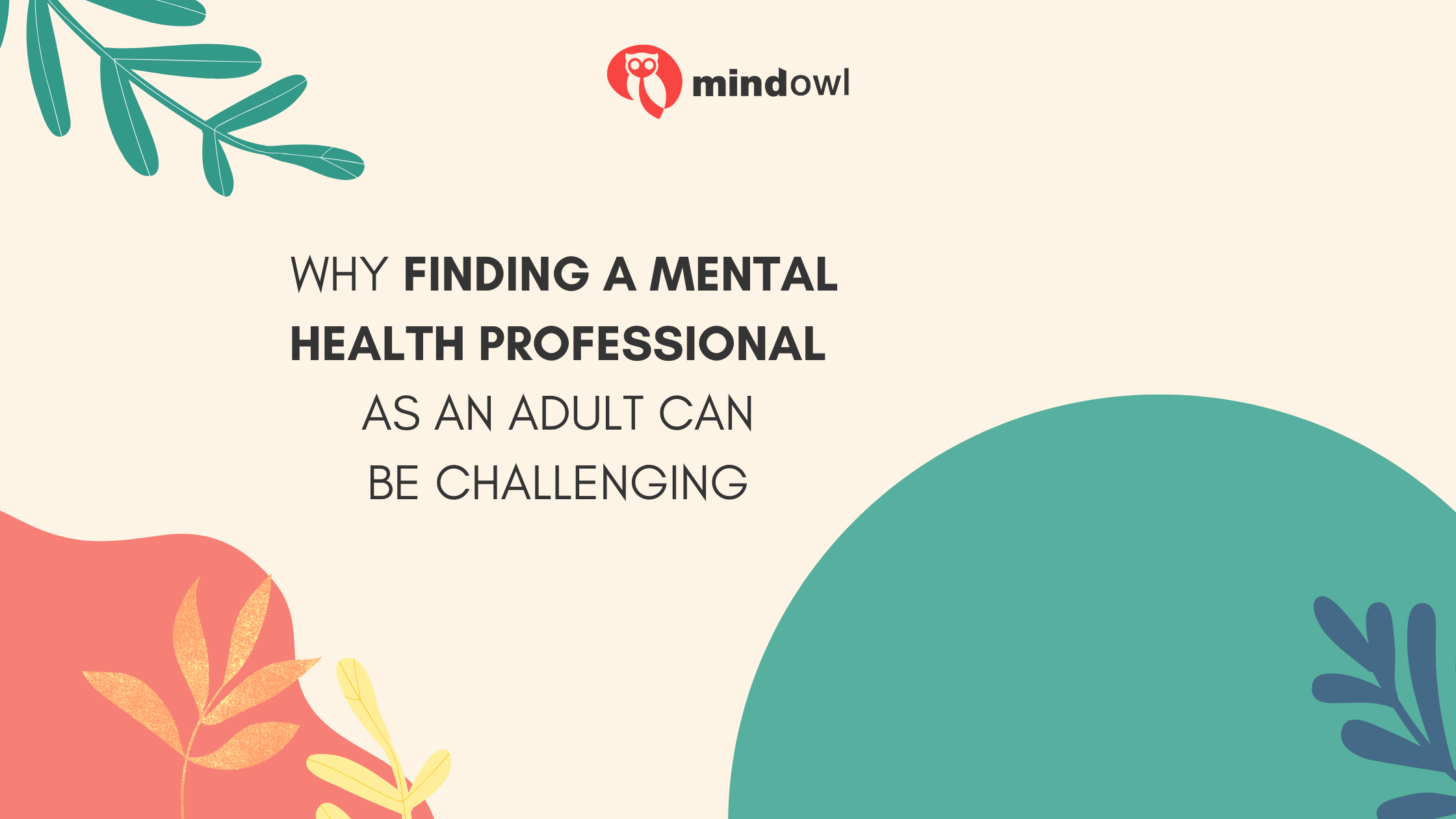You’re thirty-five and thinking about your mental health for the first time in your life. All of those times you heard the phrase “wellness,” or “work-life balance,” have finally paid off. Excellent news. Mental health care is a great way to improve the overall quality of your life. Most people can benefit from some sort of professional support for dealing with their stress and anxiety.
But who knew finding the right professional could be so hard? If you are struggling to identify the right mental health professional, you are in good company. There are several reasons why this vital task is often much more challenging than finding a general practitioner.
In this article, we will take a look at the struggles unique to finding a mental healthcare provider. We will also identify what you can do about them.
You Need to Like Them
You don’t really need to like your general practitioner. They check your blood pressure, your heart rate. They lecture you on cutting back on the beer and the processed snacks. You swear the Boy Scouts oath that this time you really will take that advice to heart, and then you go through the same old routine in a year or two.
Mental health care is a much more sensitive relationship for a couple of reasons.
- You need to be able to open up- While your general practitioner can read your weight and blood pressure right off a screen, there isn’t a mental health equivalent. If you are stressed, or depressed, your mental healthcare provider will only know because you told them.
- Frequency- You also just see your mental health professionals much more often. If your general practitioner has an unpleasant personality, well. You only have to deal with it for five minutes a year at most, right? On the other hand, many people might see their mental healthcare provider once or twice a week for the better part of an hour at a time.
These factors place a subjective value on finding a person you can work well with. While all of the mental healthcare providers you interact with will have approximately the same training, your experience can vary enormously from person to person.
Your mental health professional does not need to be your new best friend. They do need to be someone you can trust and fully commit to.

You Don’t Have Options
Not everyone does. Let’s say you live in Mattoon, Illinois. Your town of a few thousand has plenty of rural American charm. What it doesn’t have is an excess of mental health professionals. Neither, for that matter, do the nearest neighboring towns of Charelston or Effingham.
A quick review of your choices indicates not a whole heck of a lot that you are comfortable with. This, unfortunately, is a problem that lacks an easy solution. For many people, the answer is simply to either get comfortable with the idea of long commutes to their mental health professional or doing without the service.
You have options, but your insurance plan is ignoring them
Some people live in communities that have lots of mental health professionals to choose from but find that their coverage options still limit their choices to a couple of providers. From an experiential standpoint, this is no different than being in a town with only one counselor.
It Needs to Be Sustainable
Let’s say you find someone that you love but they are forty-five minutes away. This, unfortunately, is not an uncommon situation in a world where mental health workers can be few and far between depending on your location.
It’s great that you found someone, but will you be willing to take three hours out of your week to see them on a consistent basis?
Mental healthcare is a long-term proposition. You need a care arrangement that works well not just for a session or two, but over the course of multiple years.
It Needs to Be Affordable
Even insured people may have a hard time paying for mental health care. Some coverage plans ignore this aspect of healthcare entirely. Others include it but still require a copay. You might not mind spending thirty dollars for a one-time appointment with your general practitioner. You probably wouldn’t be so cool with the expense if it was scheduled weekly for the rest of your life.
Mental health care often requires much more frequent support than general health concerns, causing financial hardship for some people.
A Solution?
Telehealth services can serve as a solution for many of these issues. Remote therapy allows you to communicate with mental health professionals located all over the country. It is often more affordable than traditional, in-person care, and many insurance providers will cover it.
No, this isn’t the perfect solution. Some people won’t respond well to remote care. Other people will simply strongly prefer in-person services.
That level of accessibility is not available for everyone currently, but it might be in the future. Access to mental health services continues to increase every day. In the meantime, telehealth can serve as a good transitional resource.
MindOwl Founder – My own struggles in life have led me to this path of understanding the human condition. I graduated with a bachelor’s degree in philosophy before completing a master’s degree in psychology at Regent’s University London. I then completed a postgraduate diploma in philosophical counselling before being trained in ACT (Acceptance and commitment therapy).
I’ve spent the last eight years studying the encounter of meditative practices with modern psychology.

